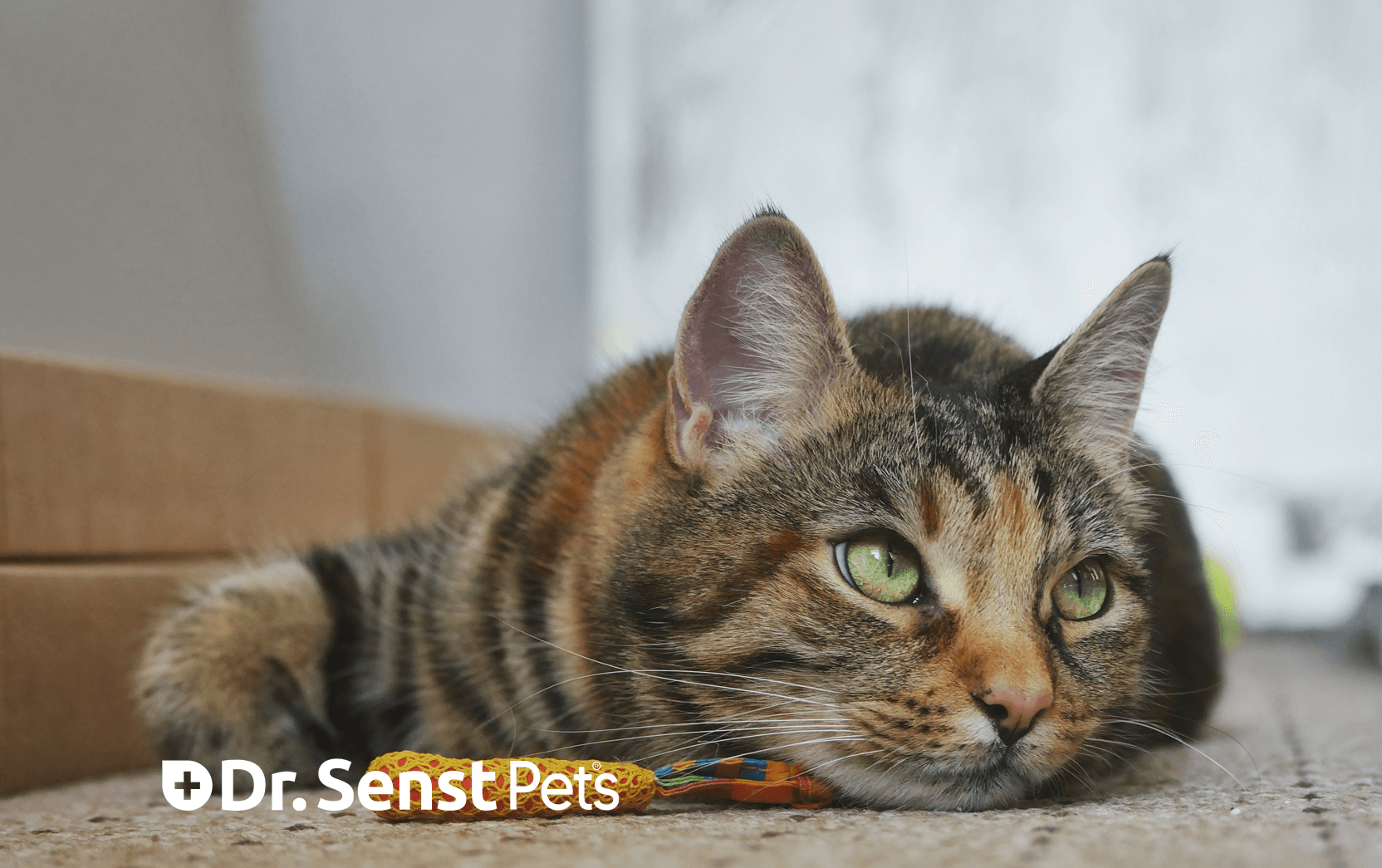
- by Dr.Thilo Senst
How to Use Probiotics to Soothe a Cat’s Upset Stomach
- by Dr.Thilo Senst
Probiotics are becoming a staple in pet care, especially when it comes to digestive health. These beneficial bacteria help maintain the balance of good and bad bacteria in the gut, which is crucial for digestion, nutrient absorption, and overall well-being. For cats with upset stomachs, probiotics can be a game-changer, providing relief from issues like diarrhoea, constipation, and bloating.
In this article, we’ll explore how cat probiotics work, their benefits, and how to use them effectively to soothe your cat’s digestive discomfort. Whether your cat has a sensitive stomach or is recovering from an illness, probiotics can play a key role in restoring gut health.
Before diving into how probiotics can help, it's essential to understand what might be causing your cat’s upset stomach. Cats can experience digestive issues for several reasons, and identifying the cause is the first step in choosing the best remedy.
Probiotics are live microorganisms, mainly bacteria, that benefit the digestive system by maintaining a healthy balance of gut flora. They help break down food, improve nutrient absorption, and protect the gut lining from harmful bacteria.
When your cat’s digestive system is off-balance, such as during periods of stress or after antibiotic treatment, probiotics can help replenish the beneficial bacteria and restore normal gut function.
When it comes to choosing probiotics for your cat, it’s important to select a product that is safe, effective, and specifically designed for felines. Not all probiotics are created equal, and some strains are more beneficial for cats than others.
Introducing probiotics into your cat’s routine can be simple, especially with the right products. Here are some tips on how to give your cat probiotics effectively:
If your cat has never taken probiotics before, start with a smaller dose and gradually increase to the recommended amount. This allows your cat’s digestive system to adjust without causing further upset.
Most probiotic supplements come in powder or liquid form, which can be mixed into your cat’s food. If your cat is a picky eater, try mixing the probiotics with a small amount of a favourite treat or wet food.
For ease of administration, probiotic treats like Dr. Senst Probiotics For Cats Treats are a convenient option. These treats are formulated with beneficial bacteria and can be given as a tasty snack that supports gut health.
Think of probiotics as the gardeners of your cat’s gut. Just like gardeners tend to plants by removing weeds and nourishing the soil, probiotics help to weed out harmful bacteria and cultivate a healthy environment for the beneficial bacteria to thrive. A well-maintained gut, much like a well-tended garden, results in a healthier, happier cat.
| Digestive Issue | Symptoms | How Probiotics Help |
|---|---|---|
| Diarrhoea | Loose stools, frequent bowel movements | Probiotics restore gut balance and regulate bowel function |
| Constipation | Difficulty passing stools, infrequent defecation | Probiotics improve gut motility and digestive efficiency |
| Bloating/Gas | Abdominal distension, excessive flatulence | Probiotics reduce gas production and enhance digestion |
| Antibiotic-related Diarrhoea | Loose stools following antibiotic use | Probiotics replenish beneficial bacteria wiped out by antibiotics |
Q: How long does it take for probiotics to work in cats?
A: The effects of probiotics can vary depending on your cat’s condition. For mild digestive upset, improvements may be seen within a few days. For more chronic issues, it may take a few weeks of consistent use to notice significant changes.
Q: Can I give my cat human probiotics?
A: No, it’s not recommended to give your cat human probiotics. Cats have different gut bacteria than humans, and their probiotic needs are specific. Always choose a probiotic that is formulated for feline use.
Q: Are there any side effects of giving my cat probiotics?
A: Probiotics are generally safe for cats, but in some cases, they may cause temporary bloating or gas as your cat’s digestive system adjusts. These symptoms should resolve within a few days.
Probiotics offer an effective way to soothe your cat’s upset stomach and promote long-term digestive health. Whether your cat is experiencing diarrhoea, constipation, or bloating, incorporating the right probiotic supplement into their routine can make a significant difference. By replenishing beneficial bacteria and balancing the gut, probiotics help to improve digestion, boost immunity, and prevent future digestive issues.
To support your cat’s digestive health, consider these products from the Dr. Senst range:
By combining probiotics with a balanced diet and proper care, you can help your cat maintain a healthy, comfortable gut.
![]()
Enter your details & download our comprehensive 50+ page printable Dr. Senst Pet Care Planner completley FREE! - keep track of all your pet’s needs, from medical history and training to vet visits, grooming, diet, and more!










Share:
Seasonal Allergies in Cats: How to Help Your Feline Friend
Best Dog Shampoos for Allergies and Itchy Skin: Soothing Solutions for Your Itchy Dog